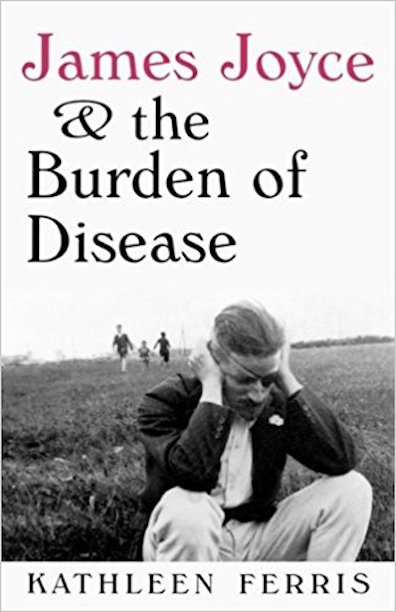Mulligan repeats, to Stephen, a fellow medical student's surmise
that Stephen has "g. p. i.," or "General paralysis of the
insane"—an outdated medical term for tertiary syphilis,
syphilis of the central nervous system. The insult may not be
quite as insensitive as it first appears, but it also seems to
have acquired a sharper edge retrospectively from the medical
problems that later appeared in Joyce's family.
General paresis, or general paralysis of the insane, or
paralytic dementia, was a severe affliction of the brain first
diagnosed in the early 19th century and originally attributed
to moral failings. In the 1880s physicians established a link
to syphilis (a biological cause, but certainly involving moral
failings!), and in the 20th century various medicines,
culminating in penicillin, were found effective in treating
the condition. Before that, g.p.i. had a 100% fatality rate,
and it filled countless beds in psychiatric hospitals.
Gifford observes that medical students sometimes used the
term as joking slang for mere eccentricity, and Slote cites
Eric Partridge's Dictionary of Slang to that effect.
Arguments have been made, however—notably by Kathleen
Ferris—that Joyce did suffer from advanced syphilis. The
mental illness of his daughter Lucia was reportedly diagnosed
as schizophrenia in the 1930s, and Ferris acknowledges that
that condition could account for some of her symptoms. But
syphilitic paresis accounts for more, she suggests, and can be
caused by spirochetes transmitted in utero (106-11).
Lucia once told her father “that she had syphilis” (111).
Ferris sees the evidence of this disease in Joyce's fictional
offspring as well: Stephen and Bloom, she argues, between them
display an assortment of symptoms (stiff walk, bad eyesight,
digestive problems, hallucinations) that might be caused by
syphilis.
Syphilis aside, Joyce’s works contain a number of instances
of mental imbalance. The mother in Eveline (a story
in Dubliners) lived a “life of commonplace
sacrifices closing in final craziness,” and the old man in An
Encounter seems deeply disturbed. Walking down a lane
in A Portrait, Stephen hears “a mad nun screeching
in the nuns’ madhouse beyond the wall. — Jesus! O Jesus!
Jesus!” Ulysses introduces two disturbed individuals
in Lestrygonians: Dennis Breen, and Cashel Boyle
O’Connor Fitzmaurice Tisdall Farrell. When Bloom points out
the “dotty” Farrell to Breen’s wife, she replies, “Denis will
be like that one of these days.” Haines, with his predatory nightmares and itchy
trigger finger, is "A woful lunatic!"
Even the even-tempered Bloom fears slipping into insanity,
perhaps because of his father's suicide. In Ithaca,
we learn that he fears "The committal of homicide or suicide
during sleep by an aberration of the light of reason."
